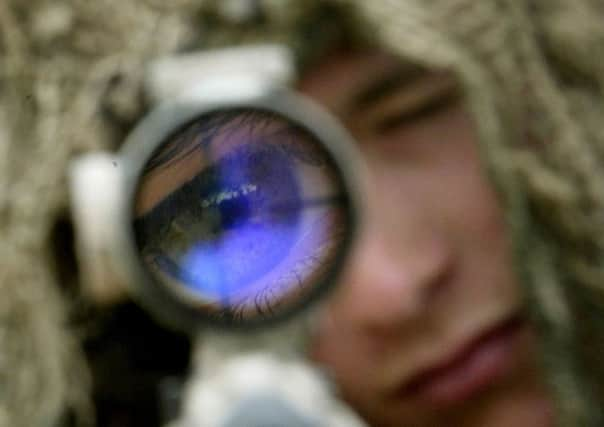Service in Afghanistan and Iraq linked to mental health care needs


The House of Commons defence committee warned that it is still taking too long for veterans to access treatment, with some falling through the gaps entirely, and availability of care varying in different parts of the UK.
The report from the cross-party committee of MPs also raised concerns about a failure to collect data on veteran suicides. Available evidence suggests the rate is no higher than among the general population, but the Ministry of Defence should take action to ensure military service is recorded as part of the inquest process, said the MPs.
Advertisement
Hide AdAdvertisement
Hide AdLast week a Johnston Press investigation – Veterans in Crisis: Military Suicides The Hidden Epidemic – revealed that the suicide rate among veterans in Scotland was not being routinely revealed and called for them to be published on an annual basis.
Official MoD figures show that 3.1 per cent of serving personnel are diagnosed with mental health conditions, twice the proportion seen in 2008-09. But the committee warned that the number of veterans with conditions such as post-traumatic stress disorder (PTSD) or depression could be three times higher, amid concerns that some may not seek help because of the stigma surrounding mental health issues.
Deployment to combat roles in Iraq or Afghanistan “clearly increased the likelihood of mental health conditions”, with one 2014 study finding PTSD levels of 6.9 per cent among regular troops and 6 per cent among reservists.
Other groups potentially more vulnerable to mental health problems include female personnel, those leaving the service early and those recruited below the age of 18.
The report said the principle enshrined in the Armed Services Covenant that veterans should receive priority treatment for service-related conditions is “inconsistently applied” across the UK, with “palpable confusion” about how it should be implemented. This has created an impression that the health service is “failing veterans”.
Committee chairman Julian Lewis said: “The MoD must ensure the few who do develop mental health problems are receiving the level of care promised to them in the Armed Forces Covenant.”
Graeme Dey MSP, Scottish veterans’ minister, said measures were being looked at to improve the recording of veteran suicides in Scotland.